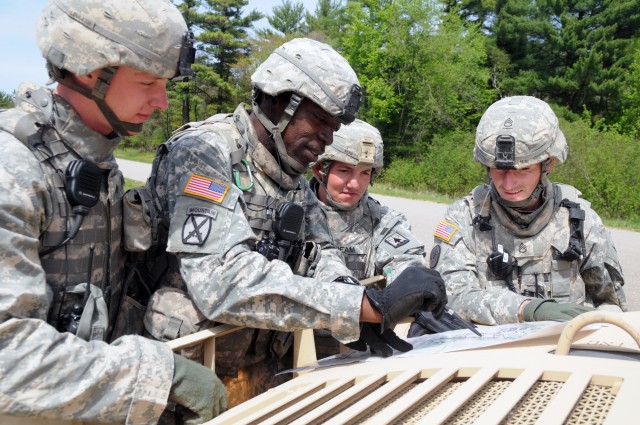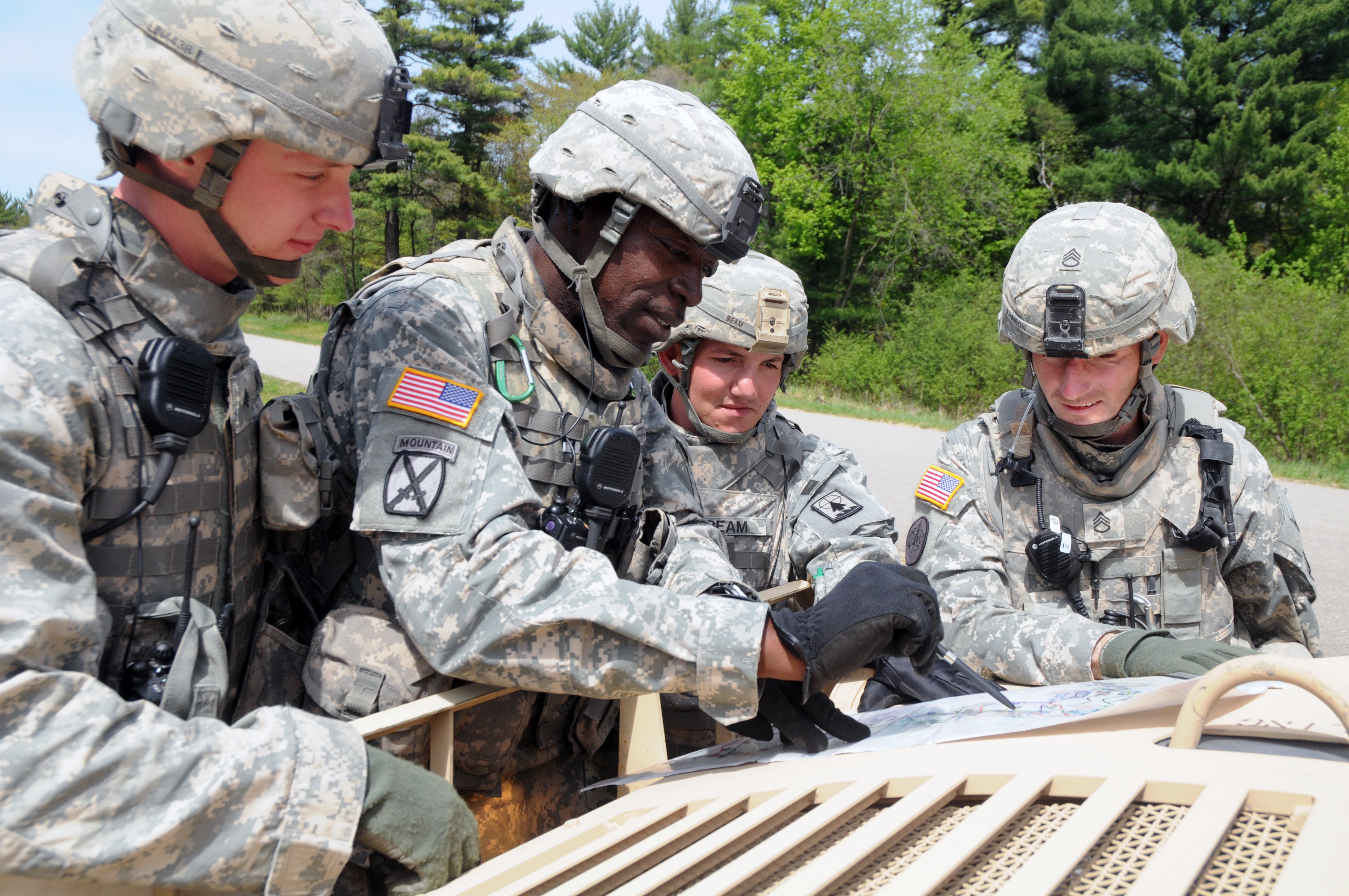
FORT McCOY, Wis. -- Mobilizing Soldiers at Fort McCoy successfully accomplish their mission because of their link with the observer controller trainers (OCT).
That is the way Sgt. 1st Class Rob Merriweather described the role of OCTs on the 181st Infantry Brigade training staff. The 181st conducts the training for units mobilizing at Fort McCoy and deploying in support of Operations Iraqi Freedom and Enduring Freedom.
"The OCT helps a unit bring all of its training together," Merriweather said, "to explain the Army standards, to provide the proper view of what they will be getting into when they head into theater."
"The OCT doesn't know all of the answers, but they know enough and know the resources for a unit to use," Merriweather said. A unit's leadership, of every rank can come to the OCTs with questions."
The OCT shadows a unit, serving as a mirror to the platoon's leadership to see if they have any needs, to see their successes and failures, and to provide feedback to the unit and its leadership about how well they did or didn't do on a scenario. "We do an after-action review after each scenario or set of exercises, so the unit learns to correct their actions," he said.
The primary goal for the OCT is to be in position to see what and how well the unit is performing their assigned tasks, according to Merriweather.
The OCT assesses, assists and facilitates a unit to refine their standing operating procedure, to ensure standards are being met. If units don't meet the standards the Army sets, they won't accomplish their mission.
If a unit goes into theater and gets "kicked," as Merriweather put it, the trainers must explain why the unit failed on their mission essential task list and other references and standards.
"In the event that a squad, platoon or company doesn't get what we are providing for them that's when we step in - start from scratch - and teach them particular skills," he said. "Then we go back through the exercise scenario again until they get it right."
Sgt. Jeremiah Lindquist, assisting Merriweather while on temporary duty as an OCT and recently back from serving a one-year tour of duty in Afghanistan with the Wisconsin National Guard's 951st Sapper Company, provided some insight that he explains to mobilizing Soldiers.
"A big thing is to definitely not set a pattern of your actions anytime you are outside of the base security perimeter."
"Complacency kills," Lindquist said. "Soldiers must always keep vigilant. Soldiers must always wear all of the safety equipment and protective gear, and always wear seatbelts in vehicles. Drive at slow speeds. All of these things save lives. Paying attention to detail will keep you alive."
Staff Sgt. Chuck Beam, also on temporary OCT duty, and having served on tours in Iraq with the 951st and in Afghanistan, said, "The enemy is always watching you and what you do, 24/7/365. So, you must change the way you do things daily. It is a constantly changing battlefield."
Beam said Soldiers need to keep composed in high-stress situations. "Soldiers also need to have confidence both in their leaders and their subordinates," Beam said. "That's very important so the mission flows smoothly."

Social Sharing